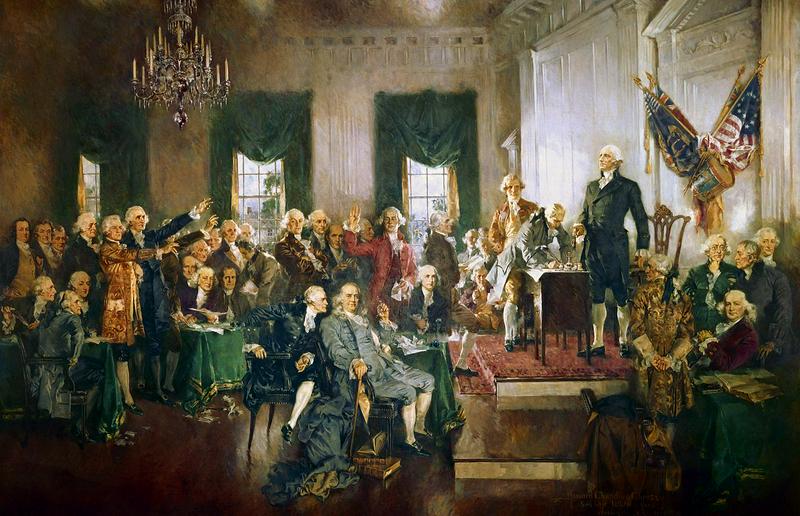Originalism: History Of The Word, Meaning, Definition, And Evolution
By | October 22, 2020

"Originalism" is a word that's being tossed around quite a bit today, and while it's played a part in political decisions for decades, it's not something that the average American thinks about on a day-to-day basis. With the Supreme Court nomination of Amy Coney Barrett, however, comes the discussion of what it means to be an originalist. What does "originalism" mean? Is there such a thing as originalist evolution? We'll get into it and break it down.
What Is Originalism?
The baseline definition of originalism is the belief that legal documents, especially constitutional ones, are meant to be interpreted as they were written at the time they were written. Judges, lawyers, and legal experts who adhere to this philosophy determine their decisions based on their best estimation of what the original authors of a law had in mind when it was penned. Laws and legal documents, according to originalists, don't evolve and can only be changed through amendments or by doing away with a law altogether. To put it as plainly and broadly as possible, originalists believe that each amendment of the U.S. Constitution covers no more and no fewer situations than it did when it was passed, from the First Amendment in 1791 to the 22nd in 1947. On the opposite end of the legal spectrum sit living constitutionalists, legal professionals who believe that the meaning of constitutional documents should change along with social norms and attitudes.

How Do Originalists Determine Original Intent?
To discern the subjective intent of someone who wrote a law in the 1700s or even the 1930s is to put yourself in the shoes of someone living in completely different circumstances than we do today. One method of determining original intent is studying the writings of the Founding Fathers and records of the Philadelphia Constitution. If those two collections don't provide enough illumination, lawmakers are encouraged to seek out debates in state legislatures.
There are problems with this kind of legal interpretation. How does one get to the bottom of what the Founders thought about a particular subject when they didn't leave detailed records of their intent? It's also impossible to know if a group as large as the Founders all had the same intentions as one another, and many scholars argue that they didn't. To combat these potential complications, a group of legal scholars developed a version of originalism called "original meaning."

Raoul Berger's Radical Originalism
Attorney Raoul Berger made huge waves in the American legal system with his 1977 book Government By Judiciary, in which he argued that the U.S. Supreme Court misinterpreted that 14th Amendment in the landmark Brown v. Board of Education decision of the 1950s. Berger was a huge believer that judges should carry out the law in a way that was faithful to the design of the Founding Fathers and felt that many 20th-century judges overstepped their bounds to transform the meanings of laws that were created in the 18th and 19th centuries.
In his book, Berger argued that the Framers who passed the 14th Amendment—which forbids the state from denying any citizen their rights via law or force—had no way of knowing that it could apply to state and local governments' control of their children's education and the desegregation mandate of Brown v. Board of Education was therefore unconstitutional. This radical interpretation of the text is one rabbit that many modern originalists likely would not chase, but it brought originalism to the forefront of constitutional law.

Antonin Scalia And Original Meaning
During his lifetime, Associate Justice Antonin Scalia was the top originalist of the American legal system. He brought the concept not only to the Supreme Court but out of the realm of the theoretical by devising a practice that didn't require a mental time machine. Scalia wrote:
You will never hear me refer to original intent because as I say, I am first of all a textualist and secondly an originalist. If you are a textualist, you don't care about the intent, and I don't care if the Framers of the Constitution had some secret meaning in mind when they adopted its words. I take the words as they were promulgated to the people of the United States and what is the fairly understood meaning of those words.

Originalism Today
Ironically, despite the seemingly concrete dictates of the philosophy, the early 21st century has seen an originalist evolution of sorts that pits more radical originalists, who believe that our laws and institutions need a retrofit to get back to the original intentions of the Founders, against moderate believers in this interpretation of the law. It's important to note that the "radicals" are in the minority. Most originalists accept the world we live in today, simply seeking tweaks to bring the law more in line with its original texts.

